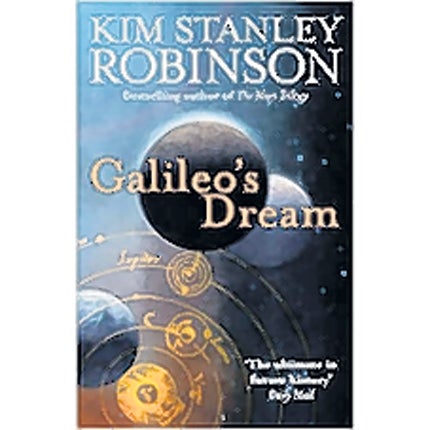Galileo's Dream, By Kim Stanley Robinson
The science of altering the past

Great things are done by imperfect people. Isaac Newton was a curmudgeon obsessed with convicting forgers and working out the date of Creation from Biblical genealogy.
Albert Einstein was an adulterer. Johannes Kepler had fanciful ideas about the music of the spheres. And Galileo, that great martyr of reason and experimental science? He was a blusterer, a flatterer and an arrogant bully who dumped his daughters in a convent.
Kim Stanley Robinson's novel about the events leading to Galileo's trial for heresy is a warts and all picture, but one that makes us love and admire the great astronomer in spite of his weaknesses. Part of the way he does this is by reminding us of the man's physical presence. His Galileo has a bad hernia and drinks too much, he's in constant ill health as he goes about discovering the moons of Jupiter. He is wonderfully tactless and a show-off – and does not bridle his mind even when the logic of his discoveries is leading him in potentially fatal directions.
He is also, and this is the colossal risk Robinson takes, the hero of a science-fiction novel in which he escapes his own time to participate in one of the greatest of human adventures – one that threatens, yet again, to dethrone humanity from the centre of its perceived universe. Some 30th century scientists have discovered, and are communicating with, a being in the ice-covered oceans of Europa, one of Jupiter's "Galiliean moons". They bring Galileo forward, partly as a prestigious tool in their arguments, partly to salve their consciences over the way they have manipulated history to bring about a version in which he shortens the war of religion and science by heroically dying at the stake.
Galileo's struggles to deal with these time travellers effectively dramatise his role as a moral agent. His choice to compromise – to rely on history to absolve him and Copernican theory – comes to seem admirable in Robinson's fable. Sometimes we need living men finishing their work as much as heroes who go down in flames.
Join our commenting forum
Join thought-provoking conversations, follow other Independent readers and see their replies
Comments
Bookmark popover
Removed from bookmarks